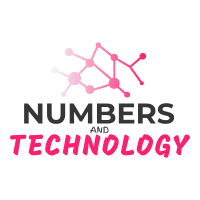 |
| the Fuguka in Japan título |
However, today's supercomputers with classic technology pale with the potential of quantum computers, seeing it in real tests, in 2019 the Google quantum computer named Sycamore of 54 Qubits completed a task in 200 seconds which means that it was 1100 times more Quicker than a conventional supercomputer like the IBM Summit which would take 2.5 days to complete the same task.
What does this show us? It is only a matter of time before classical computing is surpassed in all its markets by quantum computing.
For now, the fight seems focused on the field of supercomputers where we already see the people of D-Wave that in February 2019, announced its next-generation Pegasus quantum processor chip, announcing that it would be "the most connected commercial quantum system of the world ", with more than 5000 qubits.
In the race for Quantum Supremacy, the effects will profoundly impact humanity in the long run, because it precipitates scientific advances and in every space where a supercomputer lives, this new technology will arrive, accelerating and modifying everything in its path.
A certain fact is that the first change will come in the field of cybersecurity since one of the capabilities of these new and powerful machines is to solve current encryption algorithms, which gives way to new encryption systems such as case of quantum encryption.
Another area that will inevitably change is that of the information industry, not only because there is the possibility of exchanging information safely and under mechanisms that generate truly random numbers, but also because of the effect on Data Science by being able to manage and research on large amounts of data that will allow to detect problems and identify possibilities creating optimal solutions faster.
We are talking about the impact that cuts across medical science in the design of treatments, the pharmaceutical industry with the simulation of molecules, cryptocurrencies with its Blockchain, the financial system with the generation of financial forecasts and its risk models, as well as the design of materials for the construction of technological components, it is practically a reinvention of everything from the quantum or affected by it.
Nothing escapes the tsunami of changes that this brings and we even talk about programming languages.
On this last point, I remember the conference "This is how quantum computing will change the world" given in Spain in 2018 by Physicist Juan Ignacio Cirac Sasturain, director of the Max-Plancken Institute, where they asked him: Is it necessary to have new skills to develop on these new systems? to which he replied: "Yes and No, in principle there are already quantum software companies, Microsoft has people working in quantum software and they have to use the laws of quantum physics to program, so if you need to have new skills.
 |
| Juan Ignacio Cirac Sasturain, director of the Max-Plancken Institute |
However, although the train of quantum computing is already underway, we cannot forget that in many aspects it is in the prototype stage and what has been achieved so far does not yet have practical applications, as reported by Professor Steven Rolston, Physicist, and Director of the Institute of Quantum Technology at the University of Maryland.
Seen at the early stage in which we find this technology, The truth is that we can say that change is inevitable and it seems that everything in today's computing will converge there, making this a necessary step in current technological evolution, so opportunities are insight for anyone who knows how to take advantage of them.





0 Comments